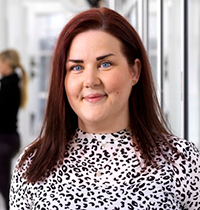New Project to Support Emerging Life Science Companies
With an increasing aging population and a rise in lifestyle and chronic diseases, the demand for health technology and solutions in the life science field is accelerating. Establishing a startup in the life science sector comes with challenges such as extensive regulations and high demands for functionality and quality. To meet these challenges, the newly launched project, Life Science Academy for Startups, has been initiated. Its task is to tailor support according to the specific needs of these companies.
Life Science Academy for Startups is an EU-funded project in the Öresund-Kattegat-Skagerrak region, targeting newly established companies in life science and health innovation. The project aims to assist companies operating in the life science sector in gaining access to knowledge and resources to launch their products into the market. A central aspect of the project is the development of an evaluation tool to provide insight into the maturity levels of companies across different focus areas, and this is where Leap for Life contributes with its knowledge and experience.
Identifying Needs
The evaluation tool is intended to identify companies' needs, such as competence development or support for prototype development. Once the company's needs are identified, they have the opportunity to work on their design and product development issues in collaboration with experts in the field in so-called Training Camps.
Halmstad University is one of eleven partners, primarily focusing on companies in medical technology and Connected Health. Researchers and other experts from various parts of the university are participating in the project, including Elin Jonsson, project manager at Leap for Life. Elin has extensive experience in coaching and development support for small and medium-sized companies working on health innovation. She argues that there are essential aspects missing in current evaluation tools and that the project, therefore, serves a crucial function.

Elin Jonsson, Project Manager
"By gathering experience from various actors, we have begun to create a common tool in the project to assess which efforts are most beneficial for the companies and which actor can provide the most suitable intervention based on the company's needs", says Elin Jonsson.
In addition to evaluating the company's needs, Elin explains that the tool has several other applications:
"The tool can also be used in dialogue with the company to create consensus within the team or to facilitate communication and collaboration among us actors in the innovation ecosystem".
Intense Development Phase
All partners in the project group met at Halmstad University in the fall of 2023, where the work on developing the tool commenced. The work will continue throughout 2024, with the goal of resulting in a well-functioning 360-tool and the implementation of Training Camps.
Parallel to this work, the development of several other offerings continues to help companies move forward.
"Anything that can optimize the process for good solutions to reach the market and create real value is central to us at Leap for Life", Elin Jonsson concludes.
Glossary
Life science is mainly about improving human health through the development of medical technology products, research, health education, and the establishment of new innovative companies. The life science sector encompasses companies, educational institutions, and public entities whose activities contribute to promoting human health.
Connected Health is a term for when health information and services are integrated and made accessible through technology and digital platforms. This includes the use of applications, sensors, and other digital tools to monitor and manage health conditions, as well as to promote communication and collaboration between healthcare providers and patients.
Training Camps are educational programs or workshops aimed at developing and strengthening the innovation capability of employees in a company or organization. Training Camps can be tailored to meet the specific needs and challenges of the company.
A 360-degree evaluation is a process for gathering feedback from various sources within or outside the organization to create a comprehensive feedback report. 360-degree feedback highlights the company's strengths, clarifies weaknesses, and provides any opinions and suggestions for improvement.

Publicerat den

